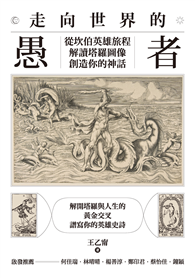Whilst upholding some of the criticisms of Colin Gunton’s work, this incisive book argues that there is a Hauptbriefein Gunton reception that assumes his early classic works, The One, the Three and the Manyand The Promise of Trinitarian Theology(1st ed), are definitive of his project and fail to engage adequately with the progressions in Gunton’s later thought. Instead, this book offers a fresh reading of Gunton by giving greater prominence to his later writings, which are centred in the mediation of the Son and the Spirit in creation.
Andrew Picard argues that Gunton’s trinitarian theology of culture emerges from his later trinitarian theology of mediation, creation, Christology, pneumatology, and ecclesiology. Exploring these doctrinal focienables an understanding of Gunton’s account of faithful human culture as embodied worship; a living sacrifice of praise which contributes to the divine redemption and perfection of creation. It is the church’s particular calling to embody such praise through its visible life in community. The study concludes by intersecting Gunton’s theology with the social sciences to critique ableism and consider the politics of the church’s belonging in community.
| FindBook |
有 1 項符合
Colin Gunton’s Trinitarian Theology of Culture: Towards a Living Sacrifice of Praise的圖書 |
 |
Colin Gunton’s Trinitarian Theology of Culture: Towards a Living Sacrifice of Praise 作者:Picard 出版社:T&T Clark 出版日期:2024-07-25 語言:英文 規格:精裝 / 336頁 / 23.39 x 15.6 x 2.54 cm / 普通級/ 初版 |
| 圖書館借閱 |
| 國家圖書館 | 全國圖書書目資訊網 | 國立公共資訊圖書館 | 電子書服務平台 | MetaCat 跨館整合查詢 |
| 臺北市立圖書館 | 新北市立圖書館 | 基隆市公共圖書館 | 桃園市立圖書館 | 新竹縣公共圖書館 |
| 苗栗縣立圖書館 | 臺中市立圖書館 | 彰化縣公共圖書館 | 南投縣文化局 | 雲林縣公共圖書館 |
| 嘉義縣圖書館 | 臺南市立圖書館 | 高雄市立圖書館 | 屏東縣公共圖書館 | 宜蘭縣公共圖書館 |
| 花蓮縣文化局 | 臺東縣文化處 |
|
|
圖書介紹 - 資料來源:博客來 評分:
圖書名稱:Colin Gunton’s Trinitarian Theology of Culture: Towards a Living Sacrifice of Praise
內容簡介
|











